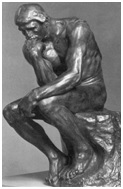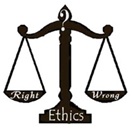|
 |
|
 |
John Locke - Philosophy and Government
John Locke (1632-1704)
English philosopher (pictured right), Thomas Jefferson's (pictured right
below) American
Declaration of Independence was greatly influenced by Locke's ideas on government and people’s
rights.
What did his three major works say?
A Letter Concerning Toleration (1689) This supported: a) health and liberty for everybody But you can’t force people to be healthy. They must want to be healthy and help themselves.
b) religious toleration Different religions must be tolerated and protected, because religion is a private matter for each individual. People can’t be forced to believe something, because belief he is “an inward persuasion of the mind”.
An Essay Concerning Human Understanding (1690) Everything we know comes from experience, based on:
Locke divided ideas into:
His tips for creativity are:
a) think for yourself
b) question everything Don’t accept any idea until it has been proved by fact, observation and experimentation.
c) welcome other people’s ideas Accept the good ones, because nobody knows everything. So love humility and hate arrogance.
Second Treatise of Government (1690) Everyone is
These rights include:
To be happy you must have:
The government must be elected by the people.
Key quote on leadership Tyranny is the exercise of power beyond right.
Key quote on knowledge management No man’s knowledge can go beyond his experience.
Key quote on ethics and integrity The discipline of desire is the background of character. |
|
|
||
|
|
|
||
|
||
| Copyright © wisdomtowin.com All Rights Reserved | ||
|







